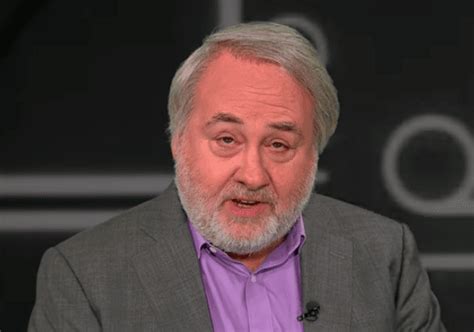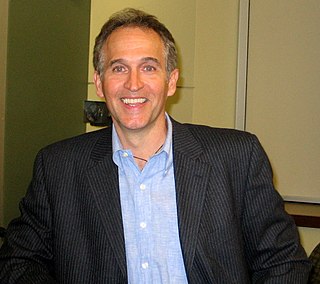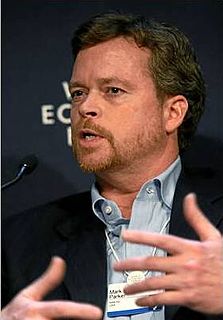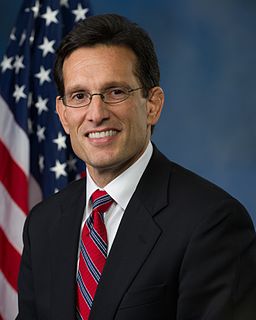Top 1200 Environmental Change Quotes & Sayings - Page 3
Explore popular Environmental Change quotes.
Last updated on April 19, 2025.
The pace of consumption, waste and environmental change has so stretched the planet's capacity that our contemporary lifestyle, unsustainable as it is, can only precipitate catastrophes, such as those which even now periodically occur in different areas of the world ... we need to reflect on our accountability before those who will have to endure the dire consequences.
Climate change is not a discrete issue; it's a symptom of larger problems. Fundamentally, our society as currently designed has no future. We're chewing up the planet so fast, in so many different ways, that we could solve the climate problem tomorrow and still find that environmental collapse is imminent.
First of all, developed countries have basically expropriated the atmosphere of the world community. But one must say clearly that we redistribute de facto the world's wealth by climate policy. Obviously, the owners of coal and oil will not be enthusiastic about this. One has to free oneself from the illusion that international climate policy is environmental policy. This has almost nothing to do with environmental policy anymore.
It's good to be aware that a certain amount of fear is going to accompany every change in your life - a change for the worse or a change for the better. Knowing this can stop you from moving into fear about Change Itself. If you start fearing change generically you could wind up shrinking from ever making any kind of change at all for the rest of your day - even a change that obviously should be made for your own good.
Two years gives you enough time to grow and to change, and to, you know, change your priorities. Change where you live, change your hair, change what you believe in, change who you hang out with, what’s influencing you, what’s inspiring you. And in the process of all of those changes in the last two years, my music changed.
The problem the world faces today is that only one-third of the world's population lives in decent circumstances, while half the population of the world lives on one or two dollars a day. And even as we have this poverty and backwardness, we are facing a global environmental crisis. We need developmental models that will take into account the specific and unique position of each country and at the same time will address the environmental crisis.
Listen, the environmental movement is not about protecting the fishes and the birds so much as recognizing that nature is the infrastructure of our communities ... If you're saying the values that drive the environmental movement are uncool and antithetical to America, then I would argue just the opposite. If you think being patriotic is not cool, I'd say that's not true either. I'd say the most patriotic thing you can do is to take care of the environment and try to live sustainably.
It is one thing to impose drastic measures and harsh economic penalties when an environmental problem is clear-cut and severe....It is foolish to do so when the problem is largely hypothetical and not substantiated by observations....we do not currently have any convincing evidence or observations of significant climate change from other than natural causes.
Change is the end result of all true learning. Change involves three things: First, a dissatisfaction with self - a felt void or need; second, a decision to change to fill the void or need; and third, a conscious dedication to the process of growth and change - the willful act of making the change, doing something.
The "environmental movement" is becoming an economic movement, is joining the social justice movement, is becoming a sustainability movement. It's leaving behind the "People's Needs versus Nature's Needs" conflict in favor of making the case for environmental health as the essential underpinning of prosperous and stable human civilization.
The clearest evidence that we are living beyond environmental means is the threat of dangerous climate change. The scale of this threat, to human life and to the natural resources and assets on which it depends, for everything from oxygen and clean water to healthy soils and flood defence, means that this simply must be our top priority
If I had to catalog all the moronic plot turns in The Day After Tomorrow, we'd be here until the next ice age. It's just so very bad. You can have a pretty good time snickering at it-unless, like me, you think there's something to this global warming thing, and you shudder at the irony of a movie meant to warn people about a dangerous environmental trend that completely discredits it. Is it possible that the film is a plot to make environmental activists look as wacko as anti-environmentalists always claim they are?
During my travels in Iraq, Israel, Gaza, Brazil, Indonesia, Japan, Europe and all over the United States, I have seen and heard the voices of people who want change. They want the stabilization of the economy, education and healthcare for all, renewable energy and an environmental vision with an eye on generations to come.
The fact is that the rich are getting richer while the poor are being left behind. Women remain under-represented in boardrooms and under-engaged in the global workforce. Environmental change is leaving the poorest countries vulnerable. Voters are becoming more and more politically polarised and partisan.
The oceans are in trouble. There are some serious problems out there that I believe are not clear to many people. My hope is to continually find new ways of creating images and stories that both celebrate the sea yet also highlight environmental problems. Photography can be a powerful instrument for change.
Sustainability at Nike means being laser-focused on evolving our business model to deliver profitable growth while leveraging the efficiencies of lean manufacturing, minimizing our environmental impact and using the tools available to us to bring about positive change across our entire supply chain.
The problems that we are facing are multiplying on the planet - economic, environmental, social, political upheaval, the list goes on. It's a time of change and transition and, as I see it, we are entering a new state of consciousness. It's a transition between one state of consciousness and another. It's an evolutionary leap that is happening.
Economic growth and environmental preservation are two sides of the same coin. There's no better illustration of that point than the California Clean Tech Open, which challenges California entrepreneurs to bring new, clean technologies to market. I encourage business leaders, policy makers, and environmental advocates to support this innovative, exciting competition.
Professionalism is environmental. Amateurism is anti environmental. Professionalism merges the individual into patterns of total environment. Amateurism seeks the development of the total awareness of the individual and the critical awareness of the ground rules of society. The amateur can afford to loose.
I was neurotic for years. I was anxious and depressed and selfish. Everyone kept telling me to change. I resented them and I agreed with them, and I wanted to change, but simply couldn't, no matter how hard I tried. Then one day someone said to me, Don't change. I love you just as you are. Those words were music to my ears: Don't change, Don't change. Don't change . . . I love you as you are. I relaxed. I came alive. And suddenly I changed!
As currently written, the laws require certain manufacturers and users of such chemicals to report any and all environmental releases-either accidental or routine-to air, water, or soil. The Toxics Release Inventory is the main registry of such events, and it is available to the public through the Environmental Protection Agency. It is hardly comprehensive. Toxic emissions reported to the federal government are thought to account for only 5 percent of all chemical releases.
It is a written fact that our people had warned of all these consequences of wrongful environmental behavior since our very first contact with the non-Indians. There was a time when our elders used to say to us, "You can't function with one foot in the white man's canoe and one foot in the Indian's canoe." With these extreme environmental concerns taking place on the earth, mankind is all in the same boat. Or better be.
If you don't like how something is going for you, change it. If something isn't enough, change it. If something doesn't suit you, change it. If something doesn't please you, change it. You don't ever have to be the same after today. If you don't like your present address change it - you're not a tree!
If some things aren't going well, do something; never wait for the things to be ok by themselves! Do something; change the direction, change the parameters, change the criteria, change anything you wish to change! To change is to create a new destiny! Remember, you have thousands of different destinies; change is your instrument to switch from one destiny to another! Remember, you have thousands of different destinies!
When you run a company, you want to hand it off in better shape than you found it. In the same way, just as we shouldn't leave our children or grandchildren with mountains of national debt and unsustainable entitlement programs, we shouldn't leave them with the economic and environmental costs of climate change.
We think the problem is out there, when the problem is really in here - who we are and how we experience the world around us. The acoustic ecologist listens, as the primary sense, to the world around us, and I believe that they have a significant contribution to make to all environmental groups who think that they're solving environmental problems, when we're actually all on a spiritual pilgrimage.
The problem of environmental children's health is very urgent in Russia. Environmental situation now is the main factor, which determines young generation's health... the volume of pollutant emissions in atmosphere and water grew and scale of ecological man-caused catastrophes increased. More than half of Russian territories, where 60-70 percent of the of population lives, have unsafe ecological situation.
Environmental policies are not just about good publicity; they are about responding to the moral imperative to address both climate change and resource depletion...A company culture that is based on measuring everything in purely financial terms will be crippled by a high turnover of staff, customers and suppliers
The environmental crisis is somber evidence of an insidious fraud hidden in the vaunted productivity and wealth of modern, technology-based society. This wealth has been gained by rapid short-term exploitation of the environmental system, but it has blindly accumulated a debt to nature-a debt so large and so pervasive that in the next generation it may, if unpaid, wipe out most of the wealth it has gained us.
The concept of national sovereignty has been an immutable, indeed sacred, principle of international relations. It is a principle which will yield only slowly and reluctantly to the new imperatives of global environmental cooperation. It is simply not feasible for sovereignty to be exercised unilaterally by individual nation states, however powerful. The global community must be assured of environmental security.
No amount of outer technology, no amount of computers and biotechnology and nanotechnology is going to stop the continuation of warfare and racism and environmental destruction. What's called for on the Earth at this time is really a change of heart ... the question is really not the future of humanity, but the presence of eternity.
Global warming is not only the number one environmental challenge we face today, but one of the most important issues facing all of humanity... We all have to do our part to raise awareness about global warming and the problems we as a people face in promoting a sustainable environmental future for our planet.
An environmental revolution is taking shape in the United States. This revolution has touched communities of color from New York to California and from Florida to Alaska - anywhere where African Americans, Latinos, Asians, Pacific Islanders, and Native Americans live and comprise a majority of the population. Collectively, these Americans represent the fastest growing segment of the population in the United States. They are also the groups most at risk from environmental problems.
On the environment and climate change, I suspect that future generations will think there was too much timidity, too much fear of upsetting business. Basically, New Labour was very nervous about regulating business, or requiring it to do anything, even when there was a very clear social or environmental case for doing so.


























































